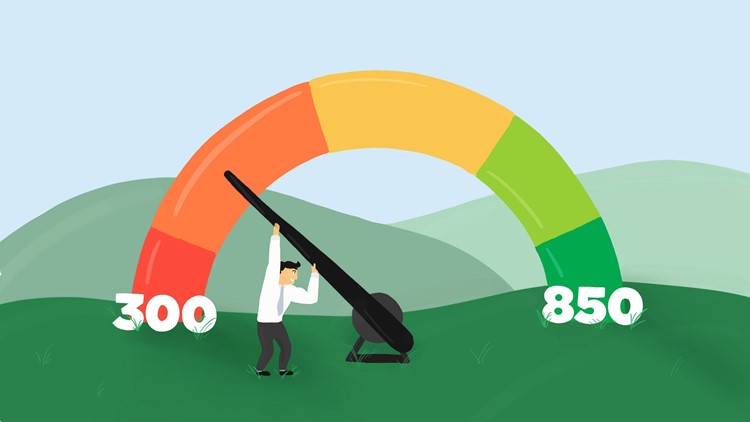If you want to maintain your financial health, then you need to maintain your credit score. This is the best way to tell your investors that you know how to use your wealth responsibly. This also makes it easier for you to borrow money. You also get the perks of low interest rates if you have a good credit score.
This is the reason why so many people start using credit cards at an early age to build their credit score. If you’re among the ones who are looking for ways to raise your credit score, here are some simple ways to do so.
- Keep a check on your credit report
You can request one credit report free of charge every year from the reporting agencies. Requesting these reports will not lay an impact on your credit score. Observe this report thoroughly and check for all the minute details. Report if you find any errors in it. This is the best way to know your credit history.
A study states that 26% of consumers have at least one potentially material error. This could be as minor as a misspelt name, address, or different accounts having the same username. However, there can be other errors too.
When you study these reports, you’ll find mistakes like few debts being repeated, the closed accounts are still listed as open. It can also show incorrect balance or wrong credit limit. All of these mistakes can impact your credit report.
So, if you find any small mismatch in the report, you must inform the agency about it. 20% of consumers have noticed an increase in credit scores after spotting such mistakes.
- Pay bills on time
Top lenders check your credit scores before lending you the money. This credit score majorly depends on your payment history and the usage of your credit cards. There are other factors too that are considered but there is an extra emphasis on these two aspects.
So, we can believe that if you don’t pay your debts and dues on time, it is likely to impact your credit score. To avoid late payments, keep a track record. You can also keep due-date alerts or allow automated bill payments from the bank.
- Less utilization
It is good to have a credit card but it is advisable to use it for less than 30% of the given credit limit. Why? Because like we mentioned the usage of your credit card also influences your credit score.
To keep things safe, pay the entire credit card bill at once or use less than 30% of the credit limit. Gradually, come down to 10% of the credit limit which is considered the ideal solution.
- No new credits
If you apply for new credit cards, loans, or any other sort of credit, it will impact your credit score. Occasional applications are acceptable.
But if all of these things occur in a short span of time then the bank thinks that you’re undergoing some financial crisis and hence, lending you is a risk.
- Careful payments
If you had taken a debt and if now it is charged off, then it means you don’t have to pay any amount to that account anymore. But if you still make a payment to these accounts, it reactivates your debt and your credit score is impacted. Usually, when collection agencies are involved, such blunders often take place.
- Keep old accounts open
Do not close the credit accounts that are no more in use. Your credit age also matters. So, all these unused old accounts also speak favourably for you when you really need credit. This helps to increase your credit score and credit utilization ratio.
- Use credit monitoring
With credit monitoring, you will be able to know the changes in your credit score over a period of time. it also protects you from identity theft or fraudulent activities. These credit reports are updated monthly for your ease.
Over to you…
When you work upon these 7 tips, you’ll understand how your credit score gradually rises. Make optimum but necessary use of your credit cards.
And do not forget, the most important factor is to pay the bills on time. Nobody would lend a person who cannot pay back on time. If needed, ask for a raise in your credit limit.
